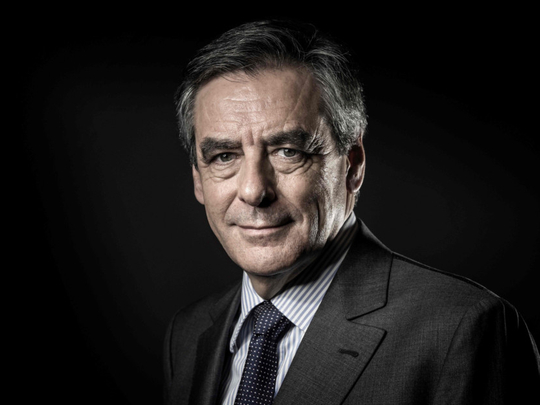
The magnificent victory of French former prime minister Francois Fillon in the country’s centre-right presidential primaries does not only mark the awakening of the French Right. It is a rejoicing illustration of three events.
The first one is that the reign of ‘single thought’ has come to an end. After decades of intellectual lobbying by journalists, pollsters and self-proclaimed opinion leaders — “there are two candidates in the contest, former president Nicolas Sarkozy and Former PM Alain Juppe, and Juppe will win” — the common people of France have shown their reluctance to accept such bullying as they believe that they can indeed think on their own. Fillon had a programme unanimously considered as the most achieved one, but “he was too far [behind] in opinion polls and had no chance to win” — until electors just proved the opposite.
A second relevant event is a confirmation of what determination can achieve when there is a willingness to deliver. Fillon never gave up — even after he went through dark days when ‘true’ friends turned towards Juppe (Regional President Valerie Pecresse, among others, an old time ally who thought she could be named prime minister). Nobody cares too much about ‘traitors’ in politics because they are part of the deal. But one needs a solid stature to continue and hold the bar. As he has shown during the primaries, Fillon doesn’t change his mind overnight, he goes on digging his path and cares little about those who tell him “you can’t do that because it is impossible!”.
Fillon checks first whether a political decision is necessary or not — reducing, for instance, the number of civil servants in France. But if he feels that a decision is necessary, then he tries to take it and doesn’t stop at the altar of conservatism that reigns in France. It is something that Juppe, a true heir to former president Jacques Chirac, did not understand. Juppe persisted with a disastrous and stupidly aggressive campaign against Fillon before the second round vote — and paid the price for it.
Finally, Fillon did not go wrong with the issues. Tactically, he let former president Nicolas Sarkozy and Juppe attack each other, while himself occupying a moral high ground. More fundamentally, he said what he thought — which is hardly acceptable to the hordes of journalists and opinion leaders who were themselves never successful in any battle of the ballot and speak on television channels as if they all belonged to the Left, which has reigned supreme in the French media for the last 50 years. Yes, indeed, Fillon’s programme is Right-leaning: Not looking like these caricatures that the Left and Juppe’s followers (who just missed what the French Right hate) have tried to peddle; but on an impeccable ethical basis, a reasonably and well-conceived programme on the Right.
For instance, Fillon has backed, full-steam, job creation, championing greater freedom, de-bureaucratising the system, listening to the people on the ground and bypassing the labour unions’ obsolete political discourse, making civil servants work as much as employees in the private sector. To that list, also add a revamped foreign policy (can one imagine Fillon being summoned to Berlin to bid farewell to United States President Barack Obama on his last European tour, as happened to Hollande?), notably based on diplomatic pragmatism. On Syria for instance, Fillon thinks that Daesh (the self-proclaimed Islamic State of Iraq and the Levant) hurts France much more than Syrian President Bashar Al Assad. In other words, Fillon is not confused about his enemies.
That said, Fillon has not yet won the presidential election and the Left will spare no effort to ring the bell and declare a ‘state of urgency’. It has become a habit for these last few months to convey some fearful news aimed at bringing the people back to the well-marked paths of the ‘single thought’. See the recurrent articles by the Left about the fact that “for Le Pen, impossible now seems possible”.
These paltry attempts to make up the truth, based upon erroneous comparisons with the US and deep ignorance of French realities, have become irrelevant for the vast majority of French people. Yet, the Left tries to hide the crude reality, the fact that it is now just one of the four stakeholders in a 20-30 per cent share of the electorate. Far-left leader Jean-Paul Melanchon, former French economy minister Emmanuel Macron, centre-left leader Francois Bayrou and Hollande himself making up the other contenders to that electoral pie.
Despite its atomisation, the Left is nevertheless still alive and one may trust Hollande’s magical talents to turn a disaster into a victory. These people, as former president Francois Mitterrand, are political mavericks who have always showed their capacity to not let any political wrangle pass by without intervention.
There will thus be many more attacks on Fillon the candidate, including caricatures, even at the cost of favouring far-right leader Le Pen. Yet, the choice of Fillon is also very bad news for her.
Luc Debieuvre is a French essayist and a lecturer at IRIS (Institut de Relations Internationales et Strategiques) and the Faco Law University of Paris.









